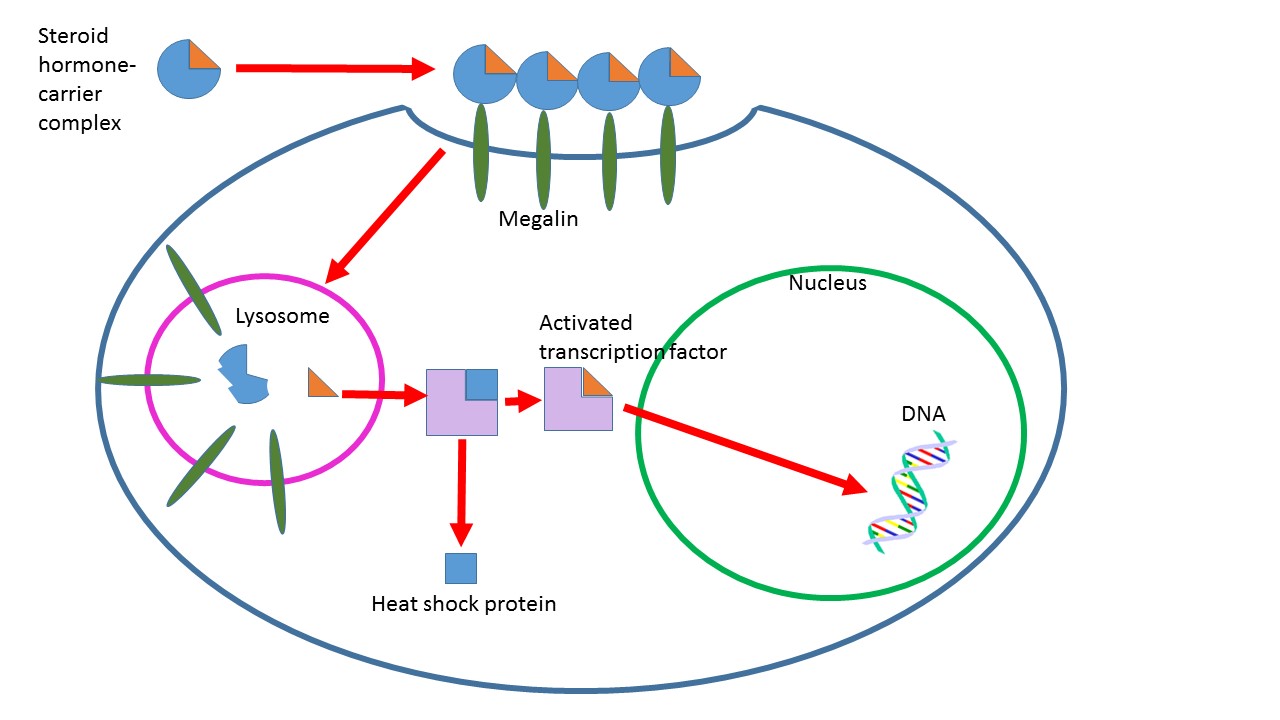Non Steroid Hormones Their Role in the Body– Non-steroid hormones play a crucial role in regulating various physiological processes within the human body. Unlike their steroid counterparts, which are derived from cholesterol, non-steroid hormones are composed of proteins, peptides, and amino acids. These hormones act as chemical messengers, transmitting signals between cells to coordinate essential functions. In this article, we will explore the diverse functions and mechanisms of non-steroid hormones, highlighting their significance in maintaining overall well-being.
Non-Steroid Hormones: Their Role in the Body / Non-Steroid Hormones: Their Role in the Body
Understanding Hormones
Hormones are chemical messengers produced by various glands in the body, such as the pituitary gland, thyroid gland, adrenal glands, and pancreas. These messengers are released into the bloodstream and travel to target cells or organs, where they initiate specific responses. Hormones are vital for regulating growth, metabolism, reproduction, mood, and countless other bodily functions.
Differentiating Steroid and Non-Steroid Hormones
The key difference between steroid and non-steroid hormones lies in their chemical composition. Steroid hormones are derived from cholesterol and are lipid-soluble, allowing them to pass through cell membranes easily. In contrast, non-steroid hormones are composed of proteins, peptides, or amino acids and are not lipid-soluble. This fundamental difference in structure influences their mechanism of action and the signaling pathways they activate.
Major Types of Non-Steroid Hormones
Non-steroid hormones can be classified into several categories based on their structure and function. Some of the major types include:
1. Protein Hormones
Protein hormones, such as insulin and growth hormone, are composed of chains of amino acids. These hormones are synthesized in the endoplasmic reticulum of cells and are stored in vesicles until they are released into the bloodstream. Protein hormones play a crucial role in regulating growth, metabolism, and energy balance.
2. Peptide Hormones
Peptide hormones, including oxytocin and antidiuretic hormone (ADH), are also composed of amino acids but are shorter in length compared to protein hormones. Peptide hormones are produced in specific glands and exert their effects on target cells or organs, influencing processes like water balance, lactation, and uterine contractions.
3. Amine Hormones
Amine hormones, such as epinephrine and norepinephrine, are derived from the amino acid tyrosine. These hormones are primarily produced by the adrenal glands and play a critical role in the body’s response to stress, regulation of blood pressure, and energy mobilization.
Mechanism of Action of Non-Steroid Hormones
Non-steroid hormones bind to specific receptors on the surface of target cells, triggering a cascade of intracellular events. This binding activates secondary messengers, such as cyclic adenosine monophosphate (cAMP), which relay the hormonal signal within the cell. These secondary messengers initiate a series of biochemical reactions that ultimately lead to the desired cellular response.
Significance of Non-Steroid Hormones in the Body
Non-steroid hormones play a vital role in maintaining homeostasis and regulating various physiological processes. They are involved in:
- Regulating metabolism and energy balance
- Controlling growth and development
- Regulating the reproductive system
- Maintaining fluid and electrolyte balance
- Modulating immune responses
- Influencing mood and behavior
- Regulating blood pressure and heart rate
Regulation and Feedback Loops
The release and activity of non-steroid hormones are tightly regulated through complex feedback loops. These feedback loops ensure that hormone levels remain within a narrow range and prevent excessive stimulation or suppression of target cells. Negative feedback loops, in particular, help maintain hormonal balance by inhibiting further hormone production when levels are adequate.
Factors Affecting Non-Steroid Hormone Activity
Several factors can influence the activity of non-steroid hormones in the body. These include:
- Age
- Gender
- Stress levels
- Nutritional status
- Environmental factors
- Presence of other hormones or medications
Understanding these factors is crucial in diagnosing and treating hormonal imbalances or disorders effectively.
Common Disorders Associated with Non-Steroid Hormones
Imbalances or dysregulation of non-steroid hormones can lead to various disorders and health conditions. Some common disorders associated with non-steroid hormones include:
- Diabetes mellitus
- Thyroid disorders
- Growth hormone deficiencies
- Polycystic ovary syndrome (PCOS)
- Adrenal insufficiency
- Pituitary gland disorders
Importance of Hormonal Balance
Maintaining hormonal balance is essential for overall health and well-being. Imbalances in hormone levels can have significant effects on various bodily functions, leading to symptoms such as fatigue, weight gain or loss, mood swings, and reproductive issues. Working with healthcare professionals to address hormonal imbalances is crucial in restoring equilibrium and promoting optimal health.
Lifestyle Choices to Support Hormonal Health
Certain lifestyle choices can contribute to hormonal health and balance. These include:
- Eating a balanced diet rich in nutrient-dense foods
- Engaging in regular physical activity
- Managing stress levels through relaxation techniques
- Getting enough quality sleep
- Avoiding exposure to environmental toxins
- Maintaining a healthy weight
Adopting these lifestyle choices can help support the proper functioning of non-steroid hormones and optimize overall well-being.
The Future of Non-Steroid Hormone Research
Research on non-steroid hormones continues to expand our understanding of their functions and mechanisms of action. Advances in technology and scientific techniques enable scientists to delve deeper into the intricacies of hormonal regulation, paving the way for potential breakthroughs in the treatment and prevention of hormonal disorders.
Conclusion
Non-steroid hormones are essential chemical messengers that regulate numerous physiological processes within the human body. Understanding their functions, mechanisms of action, and the factors that influence their activity is crucial in maintaining hormonal balance and overall health. By prioritizing lifestyle choices that support hormonal health, individuals can optimize their well-being and lead fulfilling lives.
FAQs
1. Can non-steroid hormones be taken as supplements?
No, non-steroid hormones are not typically available as over-the-counter supplements. Hormonal supplementation should only be undertaken under the guidance of a healthcare professional.
2. Are non-steroid hormones only found in humans?
No, non-steroid hormones are present in various organisms, including animals and plants. They play important roles in regulating physiological processes across different species.
3. Can hormonal imbalances be treated naturally?
In some cases, lifestyle changes such as diet and exercise can help restore hormonal balance. However, it is important to consult with a healthcare professional for a comprehensive evaluation and personalized treatment plan.
4. Are all non-steroid hormones water-soluble?
No, not all non-steroid hormones are water-soluble. While some are water-soluble, others may require transport proteins for circulation in the bloodstream.
5. How long does it take for non-steroid hormones to exert their effects?
The onset and duration of hormonal effects vary depending on the specific hormone and its target cells or organs. Some effects may be immediate, while others may take hours or even days to manifest.




